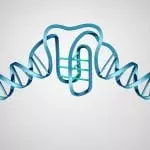[Originally published as Do Miracles Happen?]
Do miracles happen?
One of the primary reasons people take issue with religious thought is that it almost necessarily involves a concept of the miraculous—an offensive idea to one living in the 21st century West.
We’ve got it all figured out, right?
We know that “science has disproven miracles” and that the laws of nature can basically account for most (all?) phenomena that we experience.
Actually, it may surprise you that this attitude toward the miraculous is not shared by most people in the world.
Even so, it’s an issue worth talking about, because the possibility of the miraculous is most definitely required for the Christian worldview to be true. It makes miracle claims: Creation ex-nihilo, bodily resurrection, miraculous healing—none of these can work if the miraculous cannot happen.
What is a miracle?
This is a good place to start. After all, how can we form an opinion about the miraculous if we don’t even know what it is?
The 18th-century philosopher David Hume famously objected to miracles. In Can Man Live Without God?, Zacharias clarifies and succinctly responds to Hume:
Hume’s argument against miracles…runs something like this: Since a miracle is a violation or exception to a law of nature, by definition it is based on the lower degree of probability. A wise man, says Hume, will always base his belief on the highest degree of probability; therefore, a wise man will disbelieve in miracles.
Hume’s argument is somewhat strained once again. For example, the possibility of this world happening, even according to the strongest antitheist, is as close to zero as one can get. Therefore, the wise man should deny the existence of the world. His argument is dreadfully circular: He first assumes that miracles can never happen and then concludes that they have never occurred. The real wise man, to counter Hume, would be one who would make his conclusion based on the evidence.1
I think most skeptics would agree that we should make judgments based on arguments and evidence, therefore, it would be prudent to first discover whether a miracle has occurred, rather than to speculate whether they can.
And here is why we have to know what counts as a miracle. Is the mere fact that there is something rather than nothing a miracle? What else can it be?
Hume simply got the definition wrong. He claims that a miracle violates the laws of nature, but why think this is the case? Do I violate the laws of nature when I interrupt my falling pen from hitting the ground? Surely not; I merely intervene.
The subject of Divine Action (i.e, God’s working and interacting within the world) is a huge one, but it is certainly not defensible by the mere assertion that the laws of nature are violated when the miraculous takes place.
To the skeptic of miracles, I would simply begin with one of the naturalist’s favorite subjects: human evolution.
For the sake of argument, if evolution had occurred, by what measurement would we decide whether or not it was miraculous? Was it just the laws of nature working on biological material? If probability is to be brought to be bear, does that change the equation?
Dr. William Lane Craig responds to the idea that human evolution could have occurred without an intelligent designer:
…the idea that evolution could have occurred without an intelligent Designer is so improbable as to be fantastic. This has been demonstrated by Barrow and Tipler in their book The Anthropic Cosmological Principle. In this book, they list ten steps in the course of human evolution, each of which is so improbable that before it would have occurred the sun would have ceased to be a main sequence star and would have burned up the earth. They estimate the odds of the evolution of the human genome by chance to be on the order of 4^-360 (110,000)^, a number which is so huge that to call it astronomical would be a wild understatement. In other words, if evolution did occur, it would have been a miracle, so that evolution is actually evidence for the existence of God! And here the Christian can be much more open to where the evidence leads. He could say, “Well, God could have used evolution; He could have used special creation. I’m open to the evidence.” But, you see, for the naturalist evolution is the only game in town! No matter how fantastic the odds, no matter how improbable the evidence, he’s stuck with it because he hasn’t got an intelligent Designer. So it seems to me that the Christian can be far more objective on this point. After all, if you were to find watch lying on the ground, and, say, it didn’t function exactly perfectly, it lost one minute per hour, would you therefore conclude that the watch was not designed properly?
Again, it’s all in how we’re defining the terms. If evolution did occur, it seems to me it would have been miraculous by any reasonable definition.
The fact is: We live in a miraculous world. Of all the world’s we’ve discovered via modern technology, we live on the only one that is life-permitting.
Even if one would not go so far as to the claim things like human evolution2 and the existence of something rather than nothing are miraculous, they still provide prima facie evidence that the miraculous cannot be ruled out.
It would arbitrary to claim these are brute facts of some sort.
For example, to say that it just so happens to be a property of universe’s to pop into existence out of nothing is to say exactly nothing! Why don’t milkshakes or rhinoceroses pop into existence out of nothing?
Of course, to my earlier point, this does not bolster Hume’s objection in any way. For example, the creation of the world could not possibly have violated laws of nature, for the simple reason that there were no laws of nature to violate! There was nothing!
Thus, we have every reason to think a miracle could occur.
Miracles Don’t Happen?
Again, the very reason we are so offended by the idea of miracles in the West is because our scientific knowledge has advanced to the point that it seems unthinkable, for many, that something supernatural could occur.
But one looks beyond his own back yard, this objection fades into blackness.
In fact—and this was startling, to me—even many Americans seem to have no problem thinking something miraculous has happened to them.
Investigating this issue, Lee Strobel uncovered the following:
Most of all, I wanted to know how many people have had an experience that they can only explain as being a miracle of God. As it turns out, nearly two out of five US adults (38 percent) said they have had such an experience—which means that an eye-popping 94,792,000 Americans are convinced that God has performed at least one miracle for them personally. That is an astonishing number!3
This raises an important question that is often overlooked: Does personal experience count?
After all, if over 94,000,000 people believe they have had an experience of the miraculous—and therefore, the supernatural—isn’t that worth checking into? Something is going on.
Furthermore, there are many specific reports of miracle claims. I am not talking about first-person, private experiences, either. There are hundreds of peer-reviewed medical journal entries around the subject of near-death experiences, alone!
Habermas cites just one here:
For instance, in a well-documented incident, a young girl had nearly drowned, not registering a pulse for 19 minutes. The emergency room physician observed that he “stood over Katie’s lifeless body in the intensive care unit.” A CT scan showed that she had massive brain swelling, and she was without a gag reflex, while being “profoundly comatose.” Dr. Melvin Morse reported, “When I first saw her, her pupils were fixed and dilated, meaning that irreversible brain damage had most likely occurred.” Her breathing was performed artificially and she was given very little chance to survive.
But only three days later, the girl surprisingly revived and made a full recovery. Katie began repeating an incredible wealth of specific facts regarding the emergency room, her resuscitation, and even physical descriptions of the two physicians. Morse confirmed that, “a child with Katie’s symptoms should have the absence of any brain function and therefore should comprehend nothing.”
Katie recalled these recent details for almost an hour. Further, during her comatose state, she said that an angel named Elizabeth allowed her to view her family at home. Katie correctly reported very specific details concerning the clothing and positions of each family member, identified a popular rock song that her sister listened to, observed her father, and then watched while her mother cooked dinner. She even correctly identified the food: roast chicken and rice. Later, she shocked her parents by relating details from just a few days before (see Melvin Morse and Paul Perry, Closer to the Light (N.Y.: Random House, 1990), 3-14 and Transformed by the Light (N.Y.: Random House, 1992), 22-23).
For an introductory look into the possibility of miracles, complete with a plethora of anecdotal experiences and expert opinion, see Strobel’s The Case for Miracles.
For the scholarly “standard” on the subject, See Keener’s two-volume set, Miracles.4
Summarizing, Keener notes:
What the radical Enlightenment excluded as implausible based on the principle of analogy, much of today’s world can accept on the same principle of analogy. Hundreds of millions of people worldwide claim to have experienced or witnessed what they believe are miracles. Eyewitness claims to dramatic recoveries appear in a wide variety of cultures, among Christians often successfully emulating models of healings found in the Gospels and Acts. Granted, such healings do not occur on every occasion and are fairly unpredictable in their occurrence; yet they seem to appear with special frequency in cultures and circles that welcome them.
Conclusion: Their Problem, Not Ours
The fact is, in a Christian worldview, we can explain these accounts.
Millions of people around in the world, including the close to 100,000,000 accounts just in the United States, are not involved in a mass conspiracy to see and claim the miraculous where there is none.
Do people make false miracle claims? Absolutely. All the time. But false claims do not invalidate potentially true ones.
Thus, the insurmountable task of finding a sufficient naturalistic explanation for these claims lays at the feet of the skeptic wishing to claim that miraculous can’t happen and/or never







